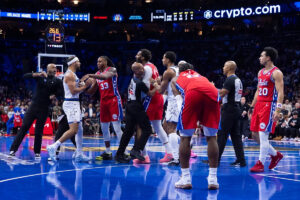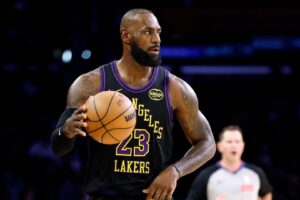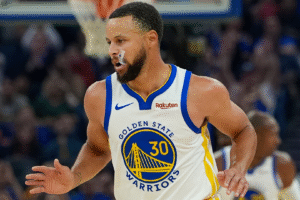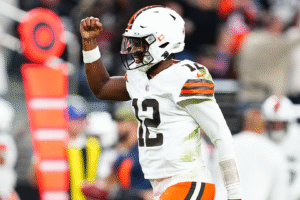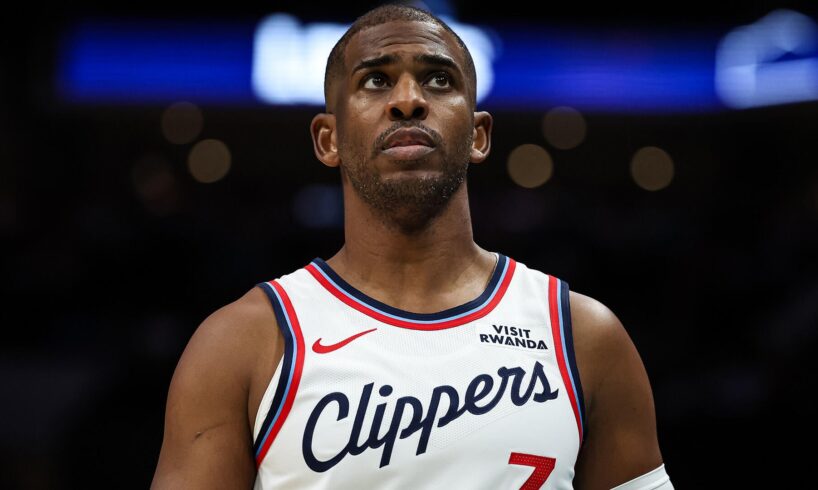
There’s a pretty wide disparity between the perception and reality of “clutch” basketball. We tend to believe it’s almost genetic: some players and teams have a clutch instinct, while others don’t. The truth is more nuanced than that. Really, clutch performance encompasses such a tiny sample that it can look almost random. Last year’s Bulls had a higher clutch net rating than last year’s Celtics. The 2022-23 Mavericks who missed the playoffs went 26-29 in the clutch. The 2023-24 team that made the NBA Finals with a pretty similar group of players went 23-9. It may not be fully random, but clutch performance is rarely consistent.
Unless, for the past few decades, you’ve had Chris Paul. The 2016-17 Houston Rockets finished 18th in clutch net rating. Then they got Chris Paul and finished first in the 2017-18 season, outscoring opponents by 27.1 points per 100 possessions in those minutes. The 2018-19 Oklahoma City Thunder finished 11th in clutch net rating. Then they got Paul and finished first in the 2019-20 season, outscoring opponents by 24.4 points per 100 possessions in those minutes. The 2019-20 Phoenix Suns finished 21st in the NBA in clutch net rating. If you’re sensing a trend here, you’ll be disappointed. It actually took Paul two whole years to lead them to the NBA’s best clutch net rating, a staggering +33.4 in the 2021-22 season. All he managed in his first season in Phoenix was a meager trip to the NBA Finals.
Between his first All-Star season in 2008 and his last in 2022, Paul won 65% of the NBA-defined clutch games he played in. During that same window, LeBron James won 64.2%. Apply the same criteria of first All-Star selection to last to other contemporaries like Kevin Durant (59.6%) and Stephen Curry (60.5%), Paul still comes out on top. In the 21st-century NBA, there was no easier path to winning close, regular-season games than having Paul on your team.
Chris Paul to retire: Clippers point guard, 12-time All-Star, stepping away at conclusion of 2025-26 season
…..

